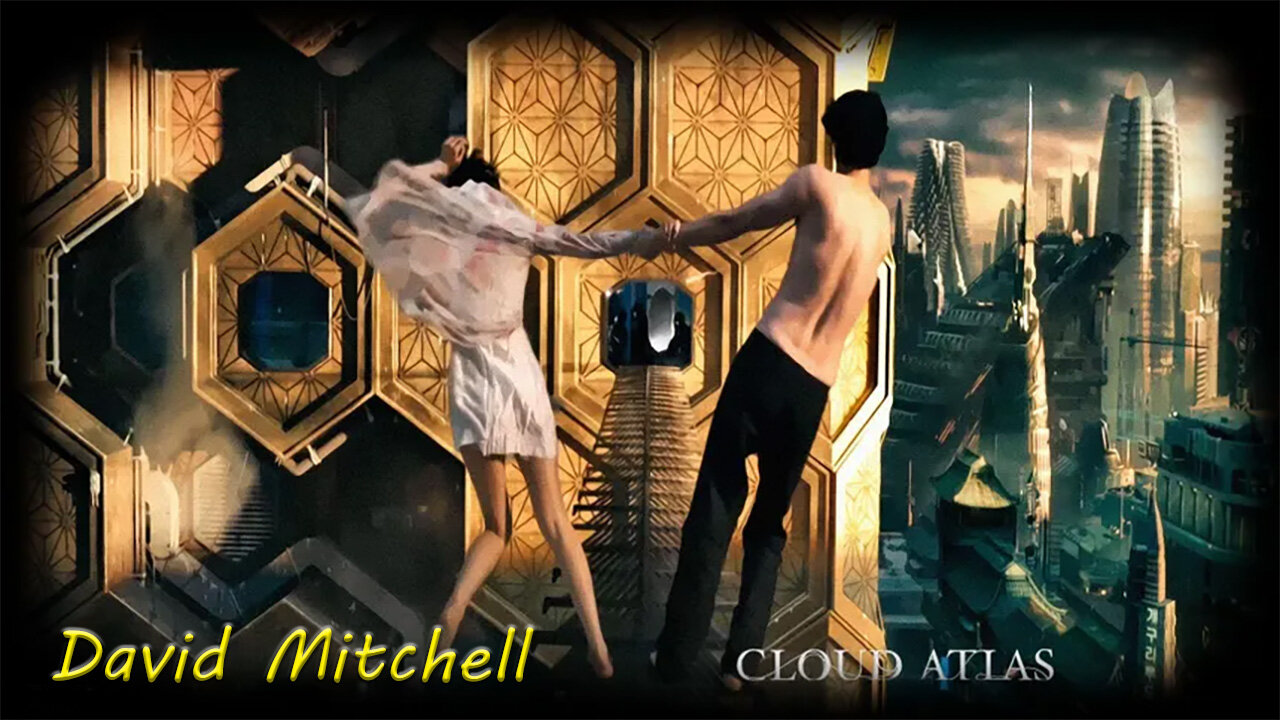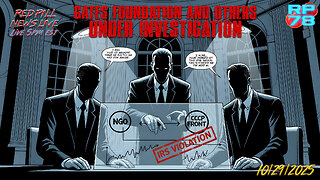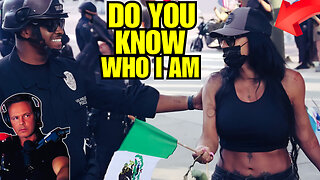Premium Only Content

'Cloud Atlas' (1994) by David Mitchell
David Mitchell’s, 'Cloud Atlas', is one of the most structurally audacious and thematically ambitious novels of the early twenty-first century. Composed as a chain of six nested narratives spanning centuries—from a nineteenth-century Pacific voyage to a far-future post-apocalyptic world—it is at once a formal experiment, a meditation on human recurrence, and a moral inquiry into the cycles of power that shape civilization. Beneath its intricate architecture, Mitchell explores a single, persistent question: whether humanity can evolve ethically, or whether exploitation and domination are our inescapable inheritance.
At first glance, 'Cloud Atlas' seems a dazzling exercise in genre mimicry. Each story imitates a distinct literary mode: the seafaring journal of Adam Ewing recalls Melvillean adventure; the letters of Robert Frobisher evoke modernist self-consciousness; Luisa Rey’s investigative thriller channels 1970s conspiratorial pulp; Timothy Cavendish’s comic memoir provides contemporary farce; Sonmi-451’s interrogation transcript belongs to dystopian science fiction; and Zachry’s oral tale of a ruined Earth reverts to myth. Yet Mitchell’s mimicry is not parody. It is an act of literary ventriloquism that reveals the continuity of human motives beneath the shifting surfaces of language and form. The book becomes a palimpsest of storytelling itself, suggesting that narrative is the connective tissue of moral experience.
Structurally, the novel unfolds like a symmetrical arch: each story interrupts the next until the central dystopia of Sonmi-451, after which the sequence reverses, completing the unfinished halves in reverse order. This pattern—often compared to a musical fugue or a matryoshka doll—creates a rhythm of anticipation and return. Mitchell thus turns narrative itself into an allegory of historical repetition: each age inherits the spiritual residue of its predecessors, distorted but recognizable. The result is both exhilarating and unsettling. Readers experience time not as a line but as an expanding echo chamber in which deeds reverberate across centuries.
Morally, 'Cloud Atlas' charts the confrontation between predation and empathy. From colonial exploitation in Ewing’s diary to corporate totalitarianism in Sonmi’s future, the same dynamic recurs: the powerful consume the weak, and the ideal of justice flickers against overwhelming appetite. Mitchell’s phrase “the weak are meat the strong do eat” becomes the novel’s dark refrain. Yet he does not succumb entirely to cynicism. Acts of compassion—Frobisher’s artistic devotion, Sonmi’s rebellion, Ewing’s late awakening—suggest that moral consciousness, though fragile, can endure through cultural decay. It is this thread of ethical memory that binds the book’s far-flung lives into a single “cloud atlas,” a constellation of souls perpetually rising and falling through time.
Stylistically, Mitchell’s prose is supple and mimetic, adapting to each genre with uncanny precision. His command of diction and rhythm allows each voice to feel fully inhabited, yet the underlying sensibility—the awareness of moral consequence, the tension between beauty and brutality—remains constant. The novel’s density rewards rereading: motifs such as birthmarks, recurring phrases, and musical structures function less as metaphysical clues than as emotional harmonics, reminding us that identity may be less linear than cyclical.
Some critics have found 'Cloud Atlas' overly schematic, its moral architecture too explicit, its cleverness verging on contrivance. There is some truth in that charge. Yet its boldness is inseparable from its power. Mitchell manages to fuse postmodern playfulness with genuine moral gravity, a combination rare in contemporary fiction. The novel refuses both despair and easy redemption. It suggests instead that progress, if it exists, is not historical but personal—a matter of whether individuals, in each age, can resist the temptation to consume one another.
In the end, 'Cloud Atlas' is less a novel about time travel or reincarnation than about moral recursion: how our smallest choices ripple forward, reappearing in other guises, shaping futures we will never see. Its architecture is a metaphor for human continuity; its message, for all its complexity, is disarmingly simple: the world we inherit is the one we make, again and again.
-
 UPCOMING
UPCOMING
Candace Show Podcast
37 minutes agoWhy Isn't The Trump Family Asking Questions About Charlie Kirk? | Candace Ep 254
3 -
 LIVE
LIVE
Stephen Gardner
34 minutes ago🔥Democrats are PANICKING after losing this FIGHT!!
555 watching -
 LIVE
LIVE
Red Pill News
1 hour agoNGO’s Caught Funding CCP on Red Pill News Live
2,082 watching -
 LIVE
LIVE
LFA TV
19 hours agoLIVE & BREAKING NEWS! | WEDNESDAY 10/29/25
1,185 watching -
 1:12:02
1:12:02
vivafrei
2 hours agoThe Rise of Mamdami & the Fall of New York! Ice Activits ARRESTED! Ostrich Farm UPDATE! & More!
72.9K45 -
 16:31
16:31
Clintonjaws
6 hours ago $2.61 earnedICE Rioters Getting Arrested - This Is Priceless
4.07K8 -
 1:05:34
1:05:34
The Quartering
3 hours agoJob Economy Collapsing, Food Wars Start Friday & The War On Tucker Carlson
105K34 -
 LIVE
LIVE
Barry Cunningham
3 hours agoPRESIDENT TRUMP EVENTS IN SOUTH KOREA | MIKE JOHNSON SHUTDOWN DAY 29 PRESSER | MORE NEWS!
1,553 watching -

The HotSeat
1 hour agoAmerican Politics Are Really NOT This HARD!!!!
3.42K2 -
 2:19:30
2:19:30
Side Scrollers Podcast
6 hours agoAngry Joe’s TDS/Halo Meltdown + Console War is OVER + Twitch Staff FIRED + More | Side Scrollers
45.6K11